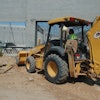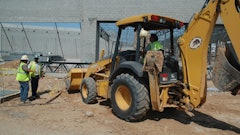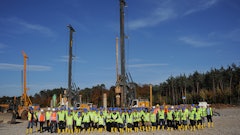With the economic recovery slowly picking up steam, staffing agencies are starting to see an interesting shift in those applying for new positions. In a recent article in The Washington Post, HireStrategy CEO Paul Villella indicated that calls to his company's office during the fourth quarter of 2012 were increasingly coming from those who were already employed but seeking new opportunities. He had not seen such a high volume of these requests since early 2008.
The article cited the driving force behind this shift as "a workforce that has grown weary of the corporate belt-tightening that was commonplace during the recession." At a time of frequent layoffs, employees were happy to have a job, making them willing to accept "austerity measures" that kept the company solvent, such as increased workloads often at the same or reduced salaries. Those employees - seeing the economy and job growth continue to improve - are now rebelling against those measures and starting to seek out greener pastures.
Proactive Steps to Keep Skilled Workers
Failure to recognize this growing discontent places a company at risk of losing skilled labor at a time when it's critically needed. Construction firms are especially vulnerable given the unique skill sets required to complete many of the tasks on construction sites.
There are steps you can take to minimize turnover within your firm. Studies indicate employees who recognize future growth opportunities are more likely to stay at their current organization. Work to establish a professional development program to provide those interested with the education, mentoring or other training to gain the skills to advance within your company. Then promote from within wherever possible.
Evaluate the compensation packages you currently offer, particularly to employees with highly valued skill sets or in key supervisory positions. Are they competitive with other construction firms in your area? If not, one method to bring them to a more comparable level is to offer bonuses based on performance, quality of work, timely or early project completion or other specified objectives.
Non-salary related incentives – such as insurance coverage, paid time off or a flexible work schedule – can also be incorporated into a compensation package to make it more enticing. Talk to or survey employees to identify the types of incentives they value most, then work to incorporate those that make sense for your operation.
Of course, there are certain employees who will walk regardless of the incentives you offer. But there are others who are looking to management for recognition and appreciation for helping the company survive the recession. If they sense unwillingness on the part of the company to acknowledge their contributions and reward them either now or in future, be prepared for them to seek that recognition elsewhere.
















